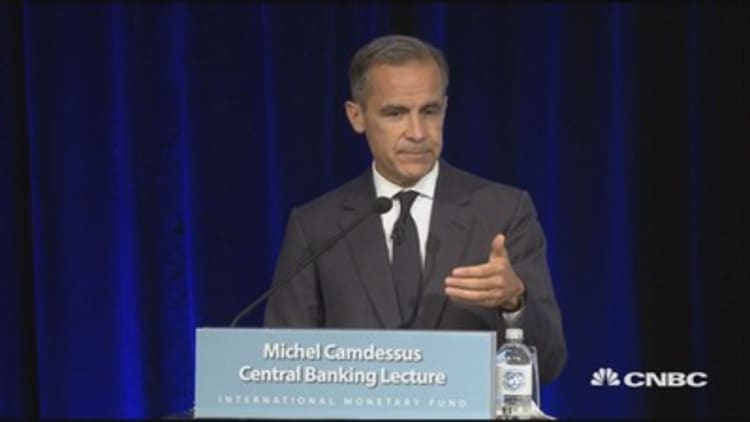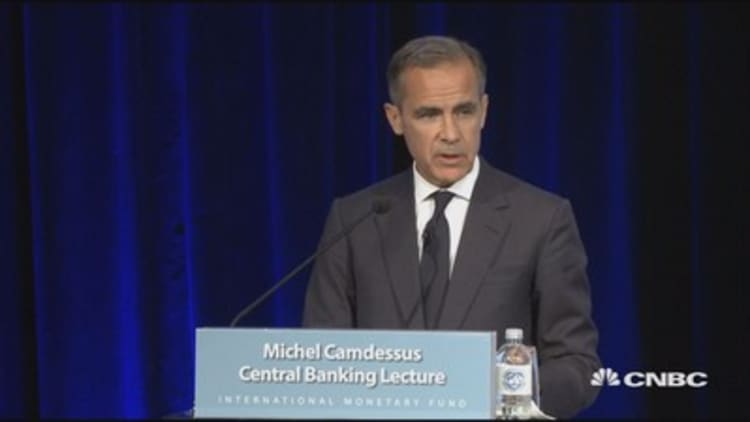Bank of England Governor Mark Carney said Brexit was likely to push up Britain's inflation rate and he reiterated the central bank's new view that interest rates are likely to rise in the coming
months.
Carney, making a speech at the International Monetary Fund's headquarters in Washington, said the process of globalisation that has led to deeper integration in the world economy in recent decades had pushed down price growth.
But Brexit represented the opposite for Britain, at least in the short term, as less openness to foreign markets and workers was likely to push up inflation and reduce productivity, he said.
"On balance, the de-integration effects of Brexit can be expected to ... be inflationary," he said. "At present, the main question concerns the extent to which this adjustment has been brought forward."
Britain's inflation has accelerated this year, due in large part to the fall in the value of the pound since the referendum decision in June 2016 to leave the European Union.

The jump in prices to nearly 3 percent - above the BoE's 2 percent target - has squeezed the spending power of many households and has slowed growth in the overall economy.
The BoE surprised financial markets last week when it said most of its policymakers thought it was likely that interest rates would need to rise in the coming months, if the economy and price pressures keep growing.
It was the strongest signal to date that Britain's first rate hike in a decade is approaching, despite the still big uncertainties surrounding the country's scheduled 2019 departure from the European Union.
In his speech on Monday, Carney reiterated that message and said the years of rock-bottom interest rates appeared to be coming to an end as the world economy picked up after the global financial crisis.
"The case for a modest monetary tightening is reinforced by the possibility that global r* (equilibrium interest rates) may be rising, meaning that monetary policy has to move in order to stand still," he said.

The pound hit its highest level against the U.S. dollar since the Brexit vote on Friday after another policymaker, Gertjan Vlieghe, who was considered the BoE's strongest opponent to a rate hike, also said borrowing costs might rise soon.
The BoE's next announcement on monetary policy is scheduled for Nov. 2. Until last week, most economists had expected the BoE to wait until 2019 before raising rates, which would have left it on the sidelines as the Federal Reserve continues to raise borrowing costs and the European Central Bank moves towards reducing its stimulus for the euro zone economy.
In his speech on Monday, Carney also said Britain was unlikely to immediately offset any weakening of trade ties with its EU partners by striking new trade agreements with other countries.
"But Brexit is an example of 'reculer pour mieux sauter,'" Carney said, using a French expression which means stepping back in order to jump better.



